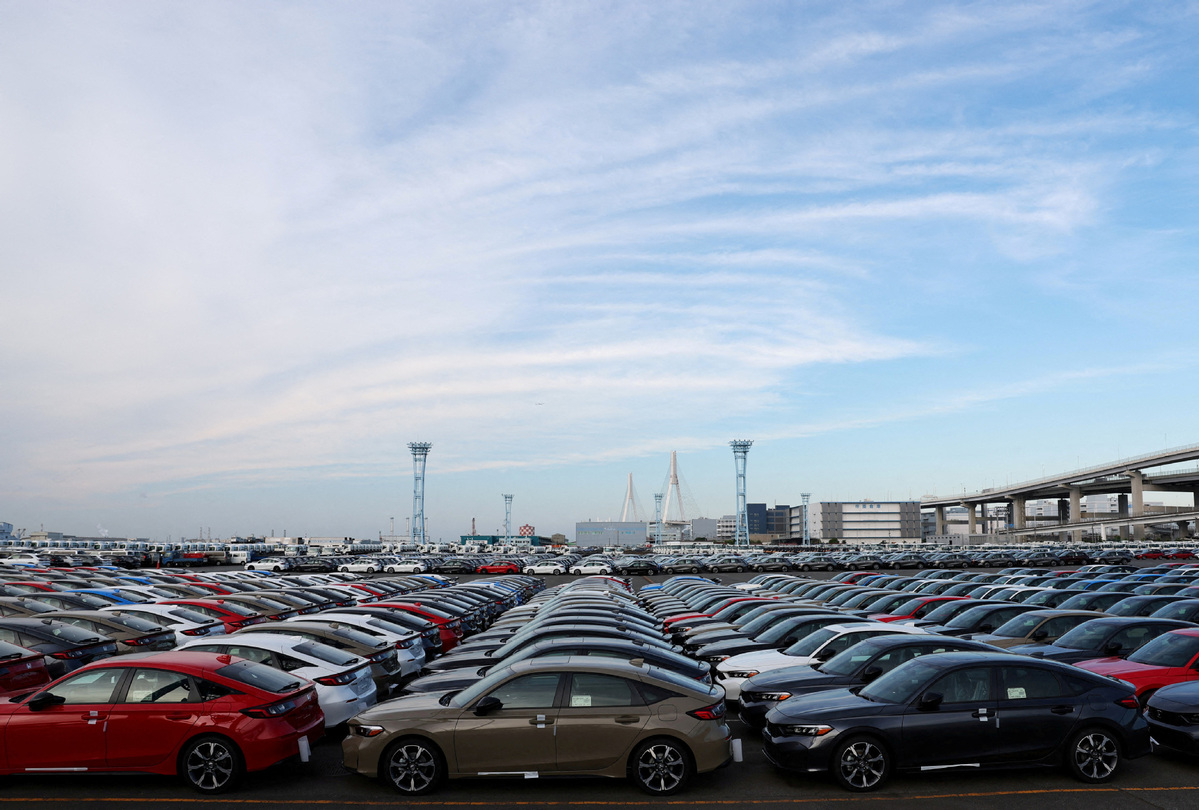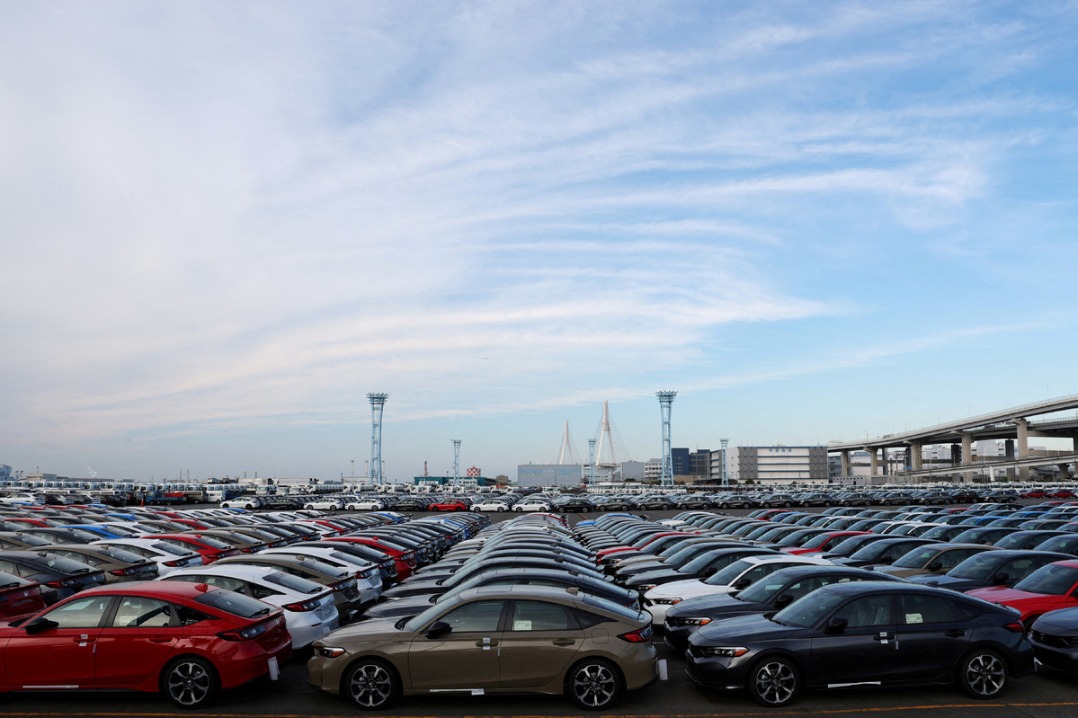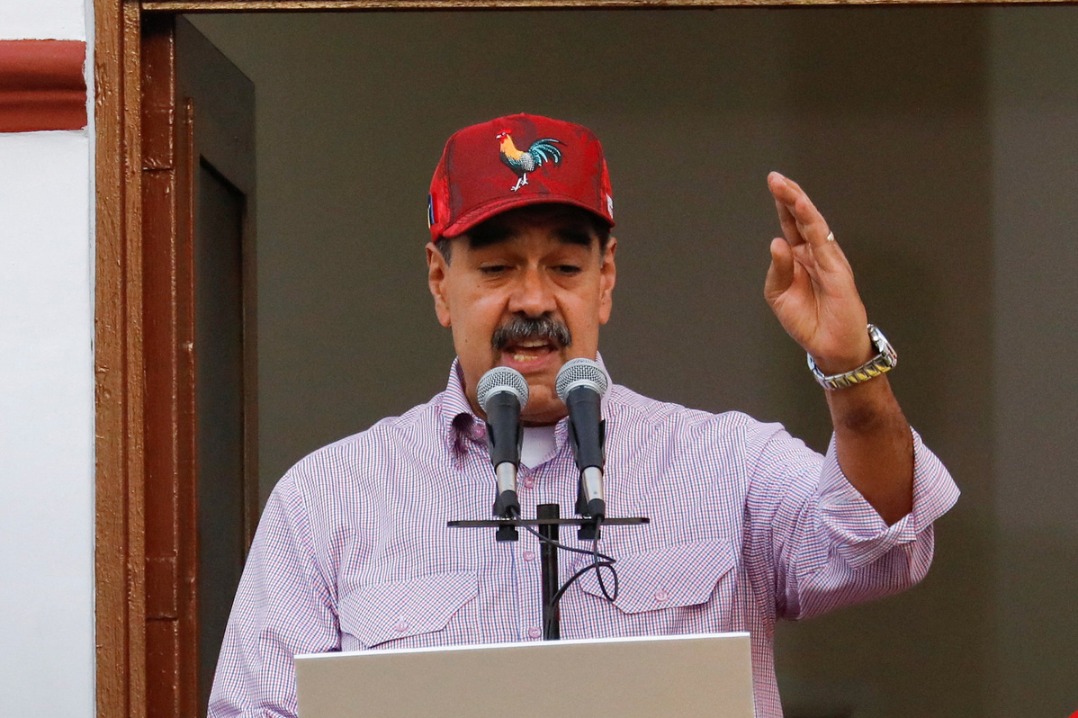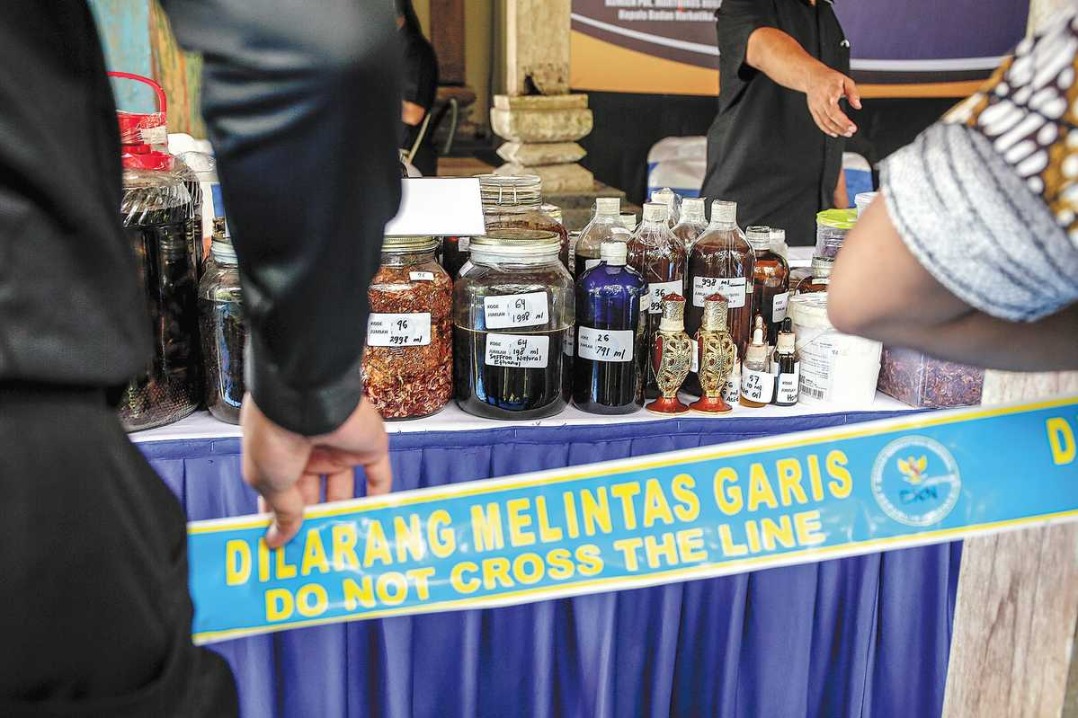Japan cuts GDP growth forecast amid US tariffs
Trade policies, inflation pressure lead to reduced export, investment projections


The Japanese government on Thursday revised downward its forecast for real Gross Domestic Product growth for fiscal year 2025 from an earlier projection of 1.2 percent to 0.7 percent, citing the impact of increased US tariffs as one of the primary factors.
Japanese analysts warn that the newly imposed US tariffs will cause significant wastage of resources and capital in Japan, inevitably exerting a negative effect on its economy and industrial sectors.
Japan's Cabinet Office cited US tariff policies and ongoing inflation as combined risks contributing to downward pressure on the Japanese economy on Thursday.
It also lowered its 2025 export growth forecast from 3.6 percent to 1.2 percent. Corporate investment growth outlook was reduced from 3.0 percent to 1.8 percent, considering the tariffs' impact on Japan's automotive and other key export industries, as well as businesses' more cautious stance on capital expenditure, according to Jiji Press.
Japan's GDP shrank by 0.2 percent on an annualized basis in the first quarter.
The new US tariffs and related policies took effect on Wednesday. Japan's trade envoy Ryosei Akazawa confirmed on Friday that a flat rate of 15 percent will be applied from now on for items previously charged less than 15 percent, following repeated discussions with US officials.
Akazawa also said the US will issue a new presidential order implementing the agreed-upon tariff rates on autos and auto parts, according to the Nikkei Asia. Under the July trade agreement, the US agreed to reduce auto tariffs from 27.5 percent to 15 percent.
Policy analyst Shigeaki Koga, a former official at Japan's Ministry of Economy, Trade and Industry, said, "If the 15 percent tariff is maintained, its impact is unavoidable." He explained that such tariffs will weaken Japanese exporters' competitiveness in the US market, forcing companies either to lower prices or face declining sales as Japanese products become comparatively more expensive in the US market.
He likened the additional cost burden roughly to a currency appreciation from the current 147 yen per dollar to between 120 and 130 yen, levels Japan has experienced before. "Thus, the export industry will not face a crisis, but sales and profits will likely decline," he added.
All sectors to suffer
Hidetoshi Tashiro, chief economist at Japanese consultancy Infinity LLC, highlighted that the fiscal issues in the US are also an important factor to consider. He predicted that almost all Japanese industries would suffer to some extent.
"Japan's supply chains are deeply interconnected across borders. Trump's tariffs disrupt and sever these chains," he said.
He also noted a complex financial impact: rising US long-term rates amid fiscal stress would widen the Japan-US interest rate gap, increasing Japan's interest income from US loans if the yen remains stable. However, a contraction in Japan's domestic credit could slow overall economic growth, meaning banks might profit even as the economy weakens.
Describing the US fiscal situation as dire, Tashiro said government debt interest payments now exceed military spending, and US Treasury bonds have lost their top credit rating.
Complicating matters, the practical implementation of the tariffs remains uncertain.
On July 22, Akazawa reached an agreement with the US administration in the Oval Office, under which the US pledged to reduce tariffs from a threatened 25 percent to 15 percent, while Japan committed to providing $550 billion in financing, loans, or loan guarantees for US projects. However, a presidential executive order published this Wednesday in the Federal Register gave special treatment to EU goods but excluded Japanese products.
Akazawa quickly stated on Thursday that the US would correct the order and refund any excess tariffs collected. He called the initial order "deeply regrettable" and described it as an administrative procedural issue.
Koga warned that the White House could rescind the agreement and threaten to reinstate the 25 percent auto tariffs if dissatisfied.
He added that this volatility applies to all countries. Fundamentally, Japan was forced to accept demands that violate international law and lack legitimacy.
"It's like having your child kidnapped and paying ransom to save them," Koga concluded.
houjunjie@chinadaily.com
































